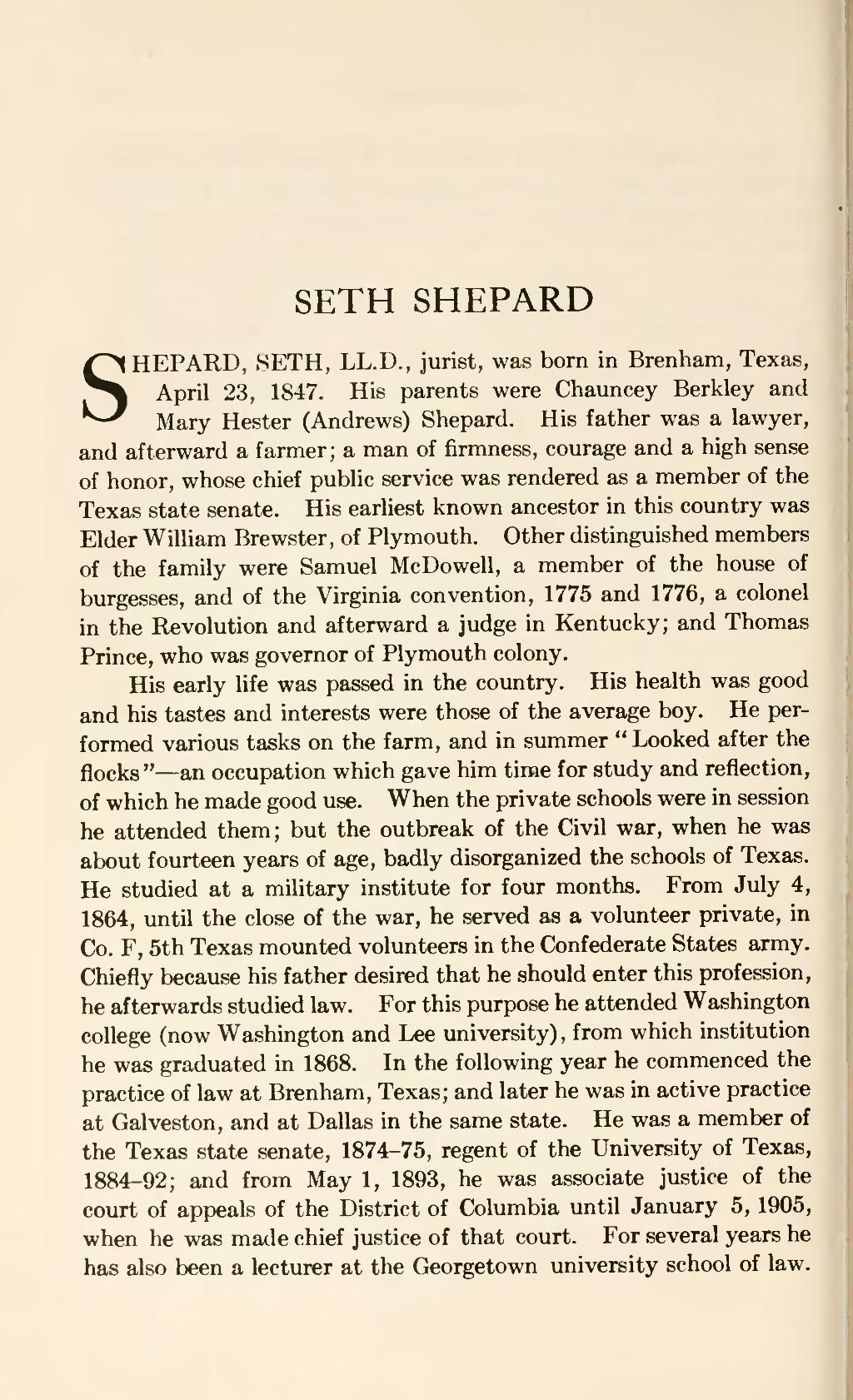SETH SHEPARD
SHEPARD, SETH, LL.D., jurist, was born in Brenham, Texas, April 23, 1847. His parents were Chauncey Berkley and Mary Hester (Andrews) Shepard. His father was a lawyer, and afterward a farmer; a man of firmness, courage and a high sense of honor, whose chief public service was rendered as a member of the Texas state senate. His earliest known ancestor in this country was Elder William Brewster, of Plymouth. Other distinguished members of the family were Samuel McDowell, a member of the house of burgesses, and of the Virginia convention, 1775 and 1776, a colonel in the Revolution and afterward a judge in Kentucky; and Thomas Prince, who was governor of Plymouth colony.
His early life was passed in the country. His health was good and his tastes and interests were those of the average boy. He performed various tasks on the farm, and in summer "Looked after the flocks"—an occupation which gave him time for study and reflection, of which he made good use. When the private schools were in session he attended them; but the outbreak of the Civil war, when he was about fourteen years of age, badly disorganized the schools of Texas. He studied at a military institute for four months. From July 4, 1864, until the close of the war, he served as a volunteer private, in Co. F, 5th Texas mounted volunteers in the Confederate States army. Chiefly because his father desired that he should enter this profession, he afterwards studied law. For this purpose he attended Washington college (now Washington and Lee university), from which institution he was graduated in 1868. In the following year he commenced the practice of law at Brenham, Texas; and later he was in active practice at Galveston, and at Dallas in the same state. He was a member of the Texas state senate, 1874-75, regent of the University of Texas, 1884-92; and from May 1, 1893, he was associate justice of the court of appeals of the District of Columbia until January 5, 1905, when he was made chief justice of that court. For several years he has also been a lecturer at the Georgetown university school of law.
